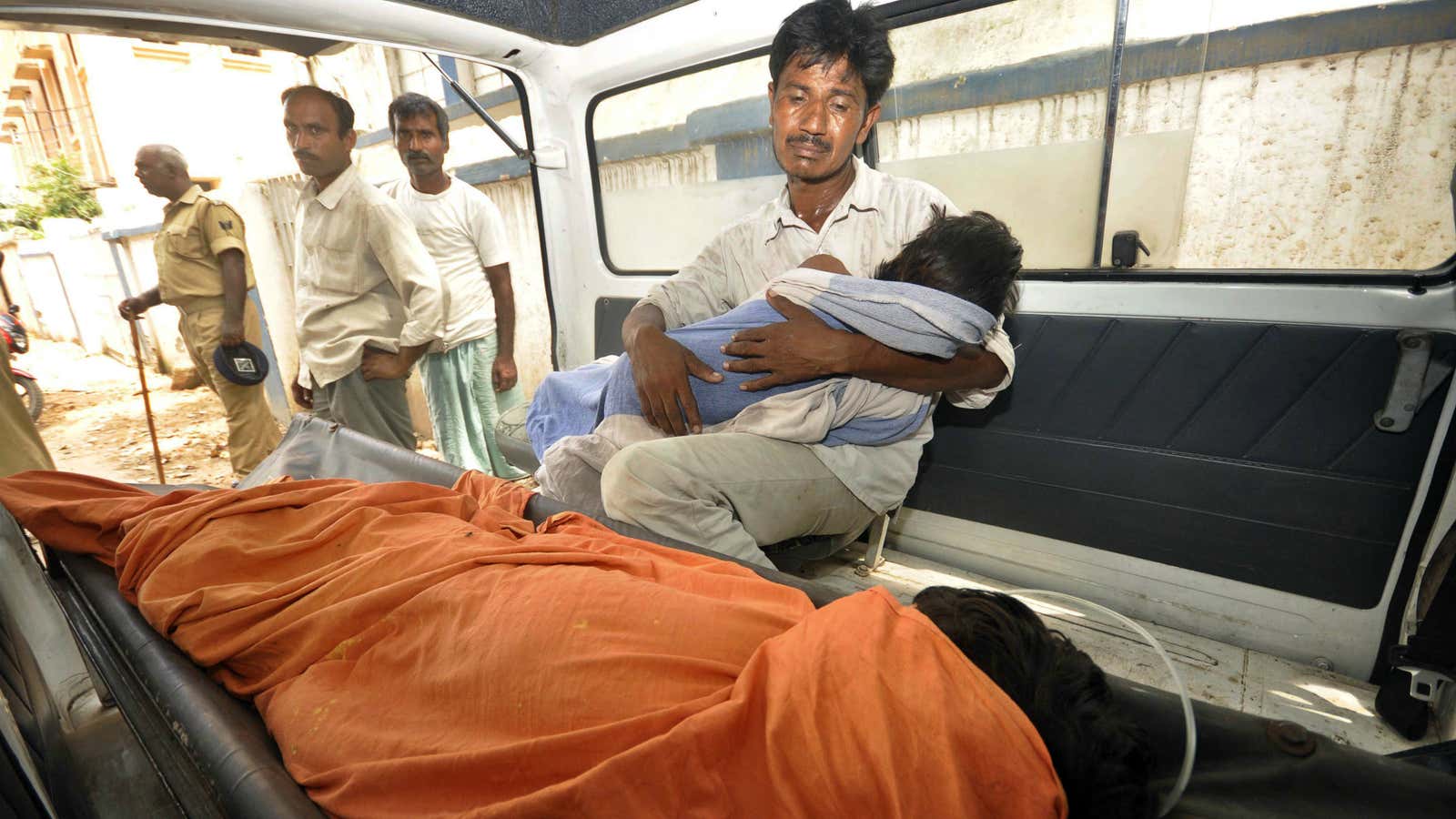Who would deliberately poison impoverished school children?
That’s a question being asked by Indian officials and a leading development economist after nearly two dozen school kids in the northern state of Bihar were killed after eating a free school meal heavily laced with insecticide.
“I do feel, and I am not alone, that this was not an accident,” Jean Drèze, a visiting economics professor at Allahabad University and one of the most vocal proponents of the free school meals program, told Quartz in an interview. “Nothing can be ruled out in Bihar … if you wanted to discredit the government this would be an easy way to do it.”
Drèze is not alone—state government officials said earlier this week that the concentration of poison in the food seemed suspicious.
“It is a clear case of poison in the food,” Bihar education minister P.K. Sahi said in a televised interview. “We’re investigating as to whether the poisoning was accidental or deliberate,” he said.
“It’s a case of poison in food in a large quantity, going by the instant deaths,” another Bihar official, Amarjeet Sinha, told the Associated Press. A forensic report is expected to be released today in India.
The school children’s death comes as India’s Parliament is considering a massive, controversial new food program targeted at some 800 million citizens. While politicians and analysts have concentrated mainly on the program’s distribution of grain to poor households, it also would substantially expand the number of free cooked meals the Indian government provides its citizens—similar to those that killed the children in Bihar this week.
Mr. Drèze said he neither he nor any officials in Bihar he had spoken to had any “specific evidence of sabotage” at this point, but added “it is difficult to believe this could have happened on its own.”
